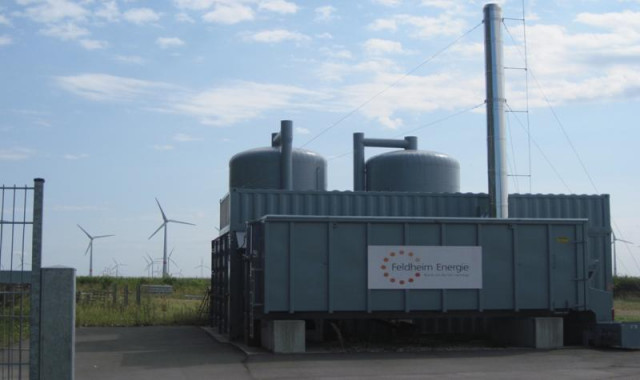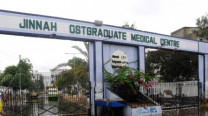Karachi’s garbage is a resource — not kachra!
There is a general improvement in the environment and aesthetics

Photo: Courtesy Farhan Anwar
Many citizens would agree that the most visible form of urban decay is reflected in the piles of unattended garbage dotting the streets, parks, playgrounds, waterways, and the coast.
The main problem with solid waste management is the fact that we still continue to consider solid waste as a 'waste' - kachra! Solid waste in fact needs to be considered a resource.
Bohri Bazaar sewage line repaired after unconventional protest
There are several ways in which urban solid waste can contribute to the environment's betterment and create financial incentives.
Urban solid waste can be broadly categorised as 'organic' and 'inorganic'. Organic waste has a biological origin, like for example food and kitchen waste. Inorganic waste is composed of elements like paper, plastic, metal. In developing nations like Pakistan, where levels of consumerism are less, the percentage of organic waste is higher.
Organic waste can be converted via composting into fertiliser. The organic fertiliser can then be used to promote activities like green gardening. Both ornamental and edible gardens can be grown. This way of gardening can be carried out in multiple spatial contexts.
From the household, street, neighbourhood to a city-wide scale in order to form part of a coordinated urban agricultural drive, the benefits are many.
There is a general improvement in the environment and aesthetics. Green spaces act as carbon sinks, thus limiting the load of greenhouse gases. They reduce impacts of heat events, while green spaces such as parks and playgrounds act as infiltration basins limiting the adverse impacts of urban flooding. Urban agricultural practices contribute to improve health and food security. Innovative public spaces can be created by implementing rooftop gardening and farming.
Pick up your litter: Young individuals endeavour to clean up the city
In France, it has been legislated that the roofs of all houses should either be housing solar panels or gardens. In Melbourne, Australia, an exercise was conducted to map all the spaces available on rooftops to work out the potential of utilising them as green spaces.
Activities and spaces related with urban farming serve as catalysts for promoting social inclusion and integration. Countless benefits can be achieved, if we can focus on converting our organic waste into fertiliser and linking it with a coordinated urban gardening and agricultural program. No rocket science or huge finances are necessary, however the benefits are multi-dimensional. In addition, if only about half of our waste gets recycled and reused, that much less waste has to be disposed.
Let's consider another option: utilising solid waste for harnessing energy. This can be done in a number of ways. In well-functioning city management systems of larger cities, it is regular practice to couple the ultimate waste disposal sites with co-generation plants to recover energy. Methane is one of the worst greenhouse gases and therefore a huge environmental concern. However, methane released at the landfill sites can be recovered and converted into energy. The scale of this energy footprint can be significant.
For example, half of Paris and the whole Louvre Museum are powered by energy generated from solid waste. A careful analysis of the calorific value of waste can determine the potential of this option. Organic waste can also be converted into bio-gas energy.
‘Gutter fashion show’: Novel form of protest bears fruit for traders
Karachi offers a unique opportunity here.
The most efficient usage of this option can come if we are dealing with agricultural waste of agricultural products and livestock. Karachi has a vast rural hinterland and if the waste from agricultural activities can be converted into bio-gas by setting up bio-gas plants, the outcome will be highly significant, financial, environmental and social.
Many things that we throw away as garbage can be recovered and converted into value-added products. In many cases, old tires are commonly used to prepare a number of decorative and functional products.
These are just a few options that are opening doors, not only for the obvious environmental benefits but for significant financial dividends as well. Not only will the city government benefit but small scale community-based entrepreneurship models can take shape. It is a matter of changing the lens we are wearing while looking at our garbage!
The writer is an urban planner and runs a non-profit organisation based in Karachi city focusing on urban sustainability issues. He can be reached at fanwar@sustainableinitiatives.org.pk
Published in The Express Tribune, February 22nd, 2016.



















COMMENTS
Comments are moderated and generally will be posted if they are on-topic and not abusive.
For more information, please see our Comments FAQ